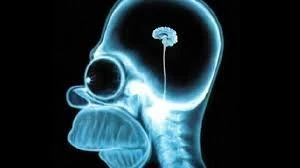Hypnosis: Is It A Safe Way to Reduce Dental Anxiety?
None of the psychological experts has agreed on the safety of hypnosis in the dental procedures, but it could help to reduce the alert of the conscious mind.
Hypnosis has the so-called “trance state” where awareness of the surroundings is reduced and attention becomes focused on certain image or feeling. Such state dose happen with everyone and almost everyday when reading, listening to music or web browsing. A person can be hypnotized by being given certain instructions in a serial pattern so that he or she goes into such trance state. Hypnosis is not a treatment by itself but it is used with other therapeutic approaches to facilitate the therapy in a peaceful state. It must be done by hypnosis professionals and with patients’ approval to undergo hypnosis even for part of treatment and not full treatment.

In dentistry, hypnosis can help to control gag reflex and to modify teeth-grinding habits. It is also helpful in treating patients with chronic facial pain, such as migraine or bell’s palsy.
However, its main benefit for dentists is to deal with phobic patients and patients with dental fear or anxiety. Dental fear is still prevalent in the general population in USA (10-20%) although several pain-relief measures are followed by dental professionals. awareness of the problem. Dental Fear Surveys (DFS) show that many adults avoid regular dental check-up because of dental fear, and this can describe the high prevalence of oral diseases in USA in a large percentage of the population. Patients with dental fear or anxiety tend to prevent their dentists to adequately complete their treatment, and this can describe some faulty treatment procedures.
It is worth mentioning here that anxiety, fear and phobia have distinctive meanings but similar physiologic and cognitive characteristics. Fear is known as a mental, emotional or physical reaction to known danger or threat. The associated physiological changes with fear include tachycardia and hyperventilation which arise from stress response. Anxiety is known as a nonspecific, anticipatory and unclear feeling of unease without immediate threat or even a know source of future threat.
Dental anxiety has a characteristic feeling of apprehensiveness and negative thoughts/experiences with every dental appointment. Dental fear can be persistent and always in response to stimulus or a perceiving threat. Patients with increased intensity of fear to the extent of avoiding dental therapy are the so-called “phobic” patients. This group exhibits extreme fear and low cooperation and may need referral to mental-health professionals prior to undertaking dental therapy.

Hypnosis can be effective for dealing with patients with any degree of dental fear. It is a natural relaxation therapy and only focused on state of mind. It is a series of suggestions given to the subconscious mind while the conscious, secured mind is relaxed. The subconscious mind is more easily to accept suggestions and to move into a trance state.
In the recent times, hypnosis is more learned by dentists and dental hygienists so they can apply in their practice. Dental professionals can learn guided relaxation and guided (pleasant) imagery which are 2 basic concepts in learning hypnosis through which the patients can be turned in relaxed state state of mind. Dental professionals are learnt to use certain words that help patients to have positive experience in the dental office.


